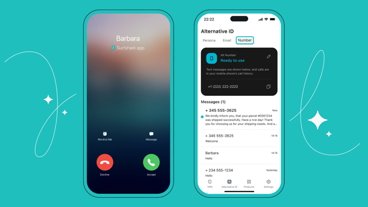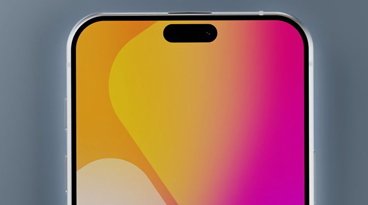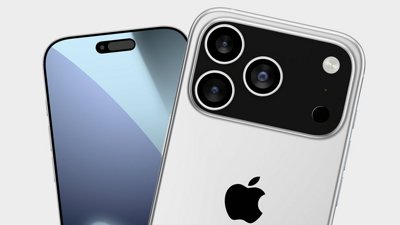The lawsuit, filed December 23, seeks to establish a class action status covering all iPhone users who have downloaded apps since December 2008, according to a report by Bloomberg.
The complaint appears to be patterned directly upon a Wall Street Journal report from the previous week, which highlighted mobile apps as using the same kind of anonymous user tracking that conventional web ad networks use to improve the relevance of display ads.
The report specifically cited Pandora as sending "age, gender, location and phone identifiers to various ad networks," while noting that the game Paper Toss "sent the phone's ID number to at least five ad companies." Both apps are named in the complaint, and their developers are listed as defendants along with Apple.
The complaint, prepared by attorneys Scott A. Kamber and Avi Kreitenberg of KamberLaw LLC in New York for Jonathan Lalo of Los Angeles, says Apple assigns iOS devices unique device identifiers that "can't be blocked by users," but says that "Apple claims it reviews all applications on its App Store and doesn’t allow them to transmit user data without customer permission."
The lawsuit reportedly alleges that "the transmission of personal information is a violation of federal computer fraud and privacy laws," and suggests that "some apps are also selling additional information to ad networks, including users’ location, age, gender, income, ethnicity, sexual orientation and political views."
A similarly sensationalized report published by the LA Times in July resulted in a Congressional inquiry into Apple's policies regarding mobile ads after it suggested Apple was spying on users to track their "precise locations."
Privacy vs advertisers
Apple does allow users to opt out of sharing their location data with advertisers on its own iAd network, and has established a privacy policy that addresses what data apps can obtain, and for what purpose. However, it appears that Apple is allowing Google and other advertisers to act beyond its stated policies.
Apple was also taken to task for establishing privacy policies that competing ad networks deemed a threat to their revenues, which prompted the company to relax its privacy policy regarding third party ad networks in September. Some other mobile platforms have no stated privacy policies and perform no reviews of apps at all.
Outside of malware, apps typically only send general demographic information to help advertisers target their messages to specific audiences, but the implications of tying any data, even anonymously, to a user's hardware in a way that can't be blocked or removed by the user is an emerging controversial issue among privacy advocates.
Blocking all user data or making any such information illegal to send to ad networks would result in making mobile ads much less valuable to advertisers, erasing the ad-supported business model that props up some types of apps in the iOS App Store and the majority of apps in Google's Android Market.
 Daniel Eran Dilger
Daniel Eran Dilger






-m.jpg)






 Wesley Hilliard
Wesley Hilliard
 Malcolm Owen
Malcolm Owen
 Amber Neely
Amber Neely
 Christine McKee
Christine McKee
 Andrew Orr
Andrew Orr

 Mike Wuerthele and Malcolm Owen
Mike Wuerthele and Malcolm Owen










47 Comments
Good.
Well.. the UDID is not a users data, it is a device ID and has nothing to do with the user. Apple in their documentations instruct developers not to permanently associate the UDID with the user.
Furthermore, Apple provided the user with the necessary controls to block any app from using location services. It is not their responsibility if the user voluntarily agreed to the developers terms and agreed to provide such information to them.
I realize this whole private data business is a slippery slope, and I don't know that I'd want it going past what it has already been.
But who freaking cares about your phone's ID number, age, location, etc? It's not like there are names, phone numbers, addresses, or anything of the sort being transmitted. It's all anonymous information used for advertising. Nothing more than ad agencies trying to reach their target market.
Personally, I couldn't care less. Maybe it's because I'm in marketing, so I completely understand the importance of reaching target audiences, but if none of the information is personally identifiable, I think anyone who is upset about this is being a baby and doesn't fully understand what's really going on here.
As I said, it's a slippery slope. But so far, nothing of much importance has been transmitted. Also, if I'm going to be shown ads (which I am), I'd much rather them be relevant to my life than completely random garbage.
What about Android?!?!
This is a class action lawsuit I would never join, especially as it does more harm than good.
I don't know all the specifics of this lawsuit, but if it could lead to irreparable harm to a company like Google, RIM or to a lesser extent Apple, in the mobile tech arena, then I want no part.